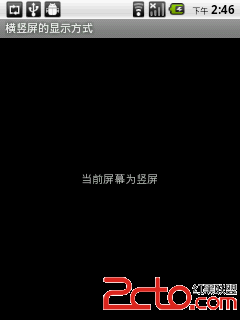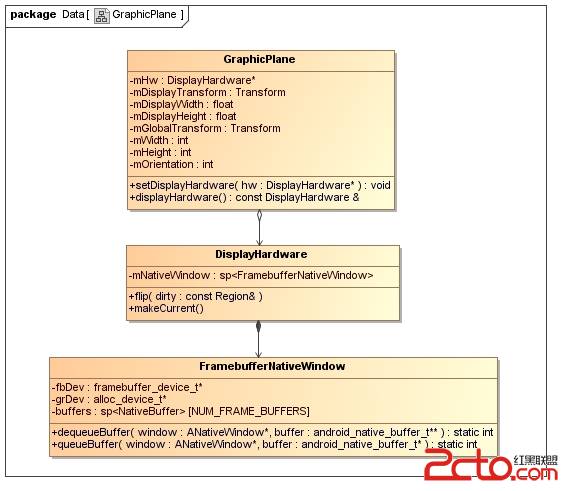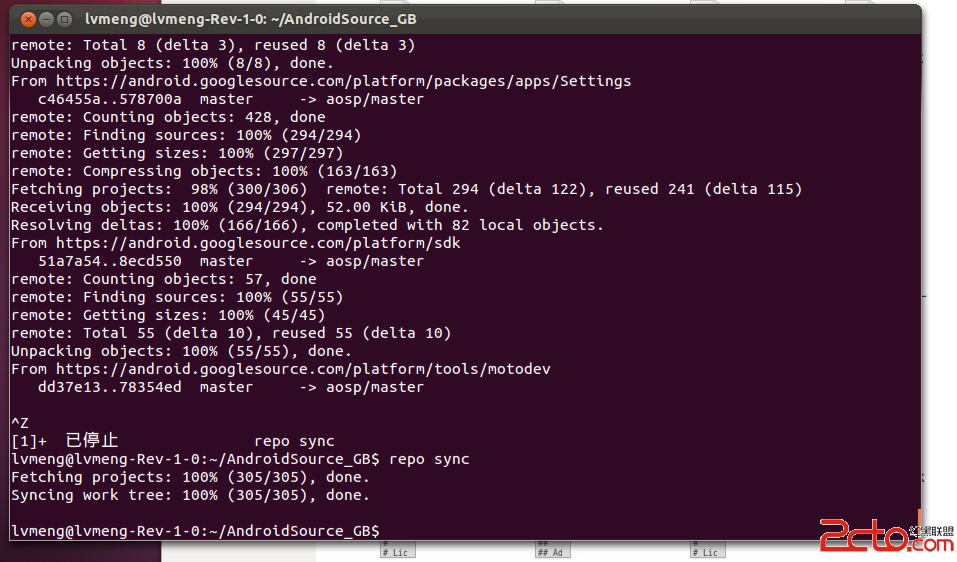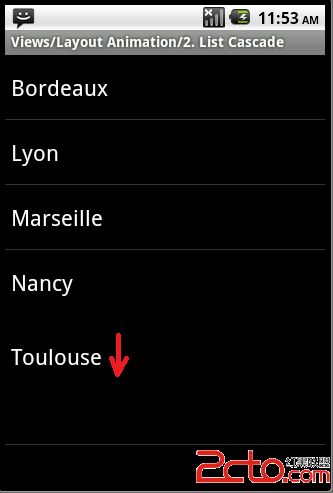如何改变Activity的显示方向
本示例演示如何通过Activity了的setRequestedOrientation()方法来设定Activity的显示方向。
本示例在Eclipse上编译测试。
1. 定义清单文件(AndroidManifest.xml)
<?xml version="1.0" encoding="utf-8"?>
<manifest xmlns:android="http://schemas.android.com/apk/res/android"
package="my.android.test"
android:versionCode="1"
android:versionName="1.0">
<application android:icon="@drawable/icon" android:label="@string/app_name">
<activity android:name=".ScreenOrientation"
android:label="@string/app_name">
<intent-filter>
<action android:name="android.intent.action.MAIN" />
<category android:name="android.intent.category.LAUNCHER" />
</intent-filter>
</activity>
</application>
<uses-sdk android:minSdkVersion="9" />
</manifest>
2. 定义字符串资源(strings.xml)
<?xml version="1.0" encoding="utf-8"?>
<resources>
<string name="hello">Hello World, ScreenOrientation!</string>
<string name="app_name">ScreenOrientation</string>
<string name="screen_orientation_summary">Demonstrates the available screen
orientation modes. Often you want to set the desired mode in your manifest
instead of programmatically.</string>
<string name="screen_orientation">Screen Orientation</string>
</resources>
3. 定义数组资源(arrays.xml)
<?xml version="1.0" encoding="utf-8"?>
<resources>
<!-- 下列控件应用的数组资源 -->
<string-array name="screen_orientations">
<item>UNSPECIFIED</item>
<item>LANDSCAPE</item>
<item>PORTRAIT</item>
<item>USER</item>
<item>BEHIND</item>
<item>SENSOR</item>
<item>NOSENSOR</item>
<item>SENSOR_LANDSCAPE</item>
<item>SENSOR_PORTRAIT</item>
<item>REVERSE_LANDSCAPE</item>
<item>REVERSE_PORTRAIT</item>
<item>FULL_SENSOR</item>
</string-array>
</resources>
4. 定义布局资源(screen_orientation.xml)
<?xml version="1.0" encoding="utf-8"?>
<LinearLayout xmlns:android="http://schemas.android.com/apk/res/android"
android:orientation="vertical" android:padding="4dip"
android:gravity="center_horizontal"
android:layout_width="match_parent" android:layout_height="match_parent">
<TextView
android:layout_width="match_parent" android:layout_height="wrap_content"
android:layout_weight="0"
android:paddingBottom="4dip"
android:text="@string/screen_orientation_summary"/>
<Spinner android:id="@+id/orientation"
android:layout_width="wrap_content"
android:layout_height="wrap_content"
android:drawSelectorOnTop="true"
android:prompt="@string/screen_orientation">
</Spinner>
</LinearLayout>
5. 创建Activity类(ScreenOrientation.java)
package my.android.test;
import android.app.Activity;
import android.content.pm.ActivityInfo;
import android.os.Bundle;
import android.view.View;
import android.widget.AdapterView;
import android.widget.ArrayAdapter;
import android.widget.Spinner;
import android.widget.AdapterView.OnItemSelectedListener;
publicclass ScreenOrientation extends Activity {
//Activity中的调整列表。
Spinner mOrientation;
/**
* 设定Activity主窗口的方向,数组中的方向会设定给R.attr类中的screenOrientation属性,
* screenOrientation的属性值必须是以下常量值。
* ActivityInfo.SCREEN_ORIENTATION_UNSPECIFIED:
* 不指定方向,让系统决定Activity的最佳方向。
* ActivityInfo.SCREEN_ORIENTATION_LANDSCAPE:
* 希望Activity在横向屏上显示,也就是说横向的宽度要大于纵向的高度,并且忽略方向传感器的影响。
* ActivityInfo.SCREEN_ORIENTATION_PORTRAIT:
* 希望Activity在纵向屏上显示,也就是说纵向的高度要大于横向的宽度,并且忽略方向传感器的影响。
* ActivityInfo.SCREEN_ORIENTATION_USER:
* 使用用户设备的当前首选方向。
* ActivityInfo.SCREEN_ORIENTATION_BEHIND:
* 始终保持与屏幕一致的方向,不管这个Activity在前台还是后台。
* ActivityInfo.SCREEN_ORIENTATION_SENSOR:
* Activity的方向由物理方向传感器来决定,按照用户旋转设备的方向来显示。
* ActivityInfo.SCREEN_ORIENTATION_NOSENSOR:
* 始终忽略方向传感器的判断,当用户旋转设备时,显示不跟着旋转。
* ActivityInfo.SCREEN_ORIENTATION_SENSOR_LANDSCAPE:
* 希望Activity在横向屏幕上显示,但是可以根据方向传感器指示的方向来进行改变。
* ActivityInfo.SCREEN_ORIENTATION_SENSOR_PORTRAIT:
* 希望Activity在纵向屏幕上显示,但是可以根据方向传感器指示的方向来进行改变。
* ActivityInfo.SCREEN_ORIENTATION_REVERSE_LANDSCAPE:
&
补充:移动开发 , Android ,




